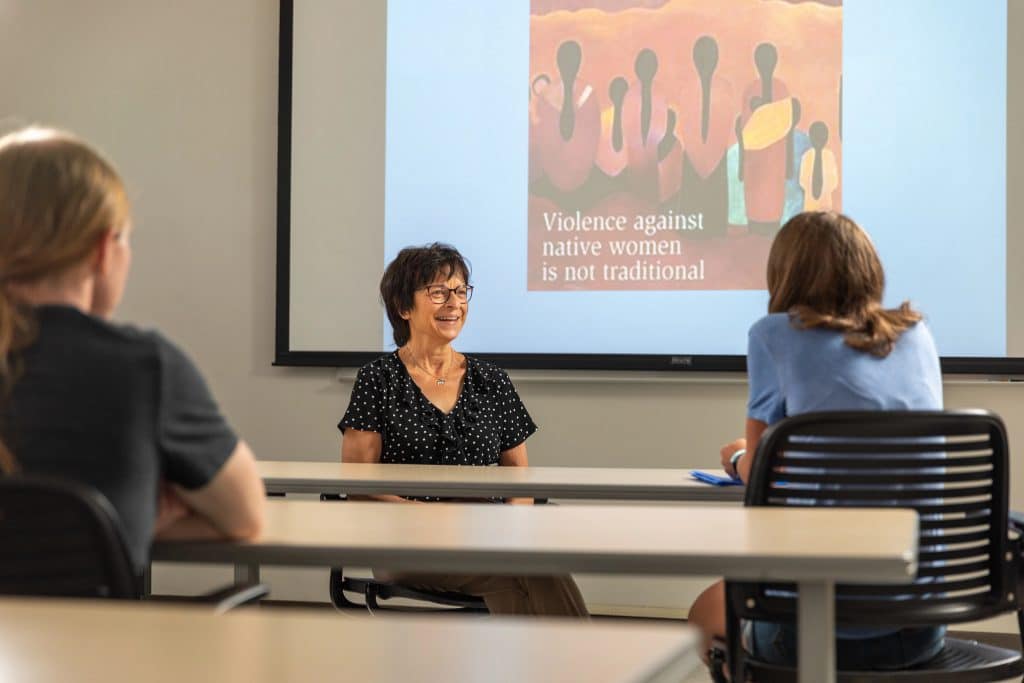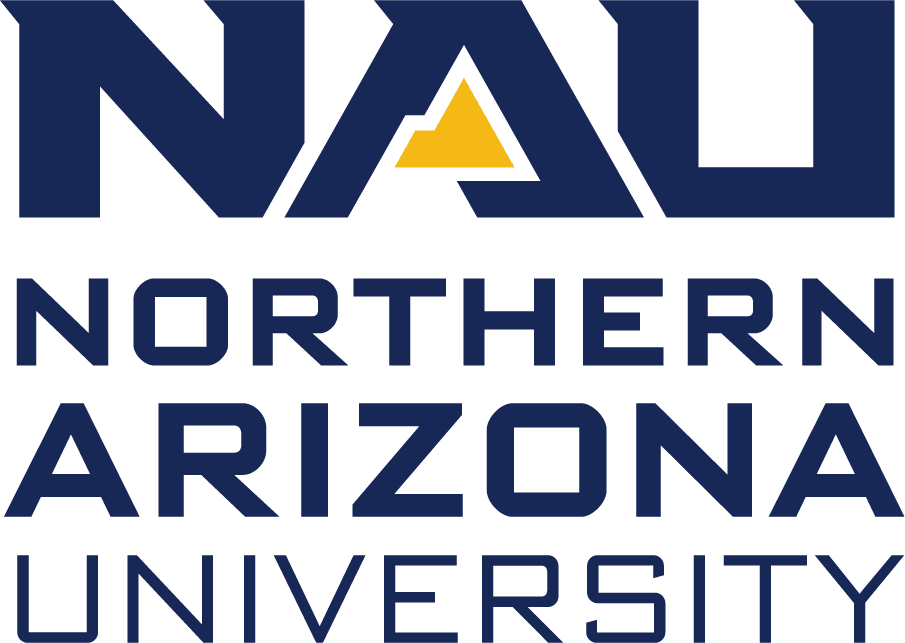This summer, NAU’s popular free Summer Seminar Series is back—and this time, it’s being offered both in person and online.
The series, presented by the College of Social and Behavioral Sciences and other contributors, explores the cultural, social and geopolitical dimensions of today’s complex world through talks by scholarly experts at NAU. This year’s lineup features discussions on water conservation, traditional foodways, music’s potential to connect communities and the history of drag, among other compelling topics. The conversations are free and open to the public.
During the sessions, parking is complimentary in nearby lots P61 and P47. Access via Zoom will be available.
The Summer Seminar Series takes place from 5:30-7 p.m. every Thursday from June 6 to July 25, except on July 4. Community members can hear the talks in person in Room 200 of the SBS West Building (070) or over Zoom. Advance registration is required to attend virtually.
For more information, visit the Summer Seminar Series webpage.
Summer Seminar Series 2024 Lineup
Getting the information we need to ensure our water is safe
June 6
Presenter: Ashleigh Day, assistant professor, School of Communication
The purpose of Day’s research is to better understand Flagstaff residents’ water knowledge, media uses, information sources and water-related risk perceptions. Being knowledgeable about water supports individuals’ informed decision-making. In consultation with the City of Flagstaff’s Water Services (CFWS), Day investigated water-related risk perceptions and gaps in residents’ water knowledge. She collected data from more than 400 local residents and found variations among risk perceptions, trusted information sources and preferred media for information dissemination. Using her research, Day will create targeted messages that can help residents get the information they need to ensure their water is safe, increasing their water knowledge, conservation and stewardship.
The rise in anti-LGBTQ legislation: A history of drag
June 13
Presenter: Meredith Heller, assistant dean, College of Social and Behavioral Sciences and associate teaching professor, Department of Sociology
Following a series of anti-LGBTQ bathroom bills, school mandates and sports restrictions, 14 U.S. states tried to pass legislation prohibiting drag performance. It might seem like queerness has always been framed as socially deviant, but the history of drag reveals a different story; in fact, theatrical gender-bending was often a vehicle for upholding social and political norms. This presentation will show how the complex relationship between drag and popular perception does not support political sentiment that LGBTQ content is inherently anti-normative, “unsuitable” for children or criminal.
The life of a logo: 10th-anniversary thoughts on the symbol of NAU
June 20
Presenter: James Bowie, teaching professor, Department of Sociology
What does a logo say about the institution it represents? Ten years ago, Bowie served on the committee that helped create the NAU logo. Since then, he has been collecting images that illustrate how the logo’s design, use and meaning have developed along with the university. He will present this visual evolution in the context of the history of symbols at NAU and with an eye to the larger significance of logos in our society.
Life in the “soundcurrent:” Finding peace in the desert
June 27
Presenter: Kurt Lancaster, professor, Creative Media and Film
Join us for a screening of the award-winning 45-minute documentary “Steve Roach: Life in the Soundcurrent” by Lancaster. He will discuss the five-year journey of making this film, what he learned and the future of this film. It has been screened at 30 film festivals and earned nine awards. A man overwhelmed by the cacophony of everyday life turns to the desert to find peace, which inspires him to create music from what he refers to as the “soundcurrent.” Nearly 300 albums and two Grammy nominations later, he reflects on his life, loss and process and what it means to sculpt sound from desert spaces.
Using collaborative video for the conservation of gastronomic knowledge in southern Mexico
July 11
Presenter: Armando Medinaceli, assistant professor, Department of Anthropology
Using conventional and digital research methods, Medinaceli documents the gastronomic knowledge of communities in the highlands of Chiapas. Following a collaborative approach, Medinaceli’s initial research phase included training a community research team on how to document and produce gastronomic videos in accessible formats for the local participating communities, as well as on methodologies for documenting traditional ecological knowledge. Videos serve as a path to involve people from different generations in a research process that responds to local interests in the protection and conservation of local traditional gastronomic and ecological knowledge while supporting food sovereignty initiatives.
Anarchy in action: Exploring the politics and activism of dissent
July 18
Presenter: Sean Parson, associate professor, Department of Politics and International Affairs and Department of Sociology
Anarchism has provided a powerful ideological tool for protests and experimental politics throughout the world, ranging from Occupy Wall Street, Black Lives Matter, the climate justice movement and the antifascist resistance to right-wing populism. While central to social movement politics, anarchism is poorly understood in mainstream culture, as it is often associated with chaos and violence. This talk will navigate the intricate terrain of anarchism, engaging with both its theoretical foundations and historical examples of anarchism in practice, focusing on the Spanish Civil War, the Rajava Revolution in Kurdish areas of Syria, the Zapatista movement in Mexico and others.
Music as agent for social connection
July 25
Presenter: Eylin Palamaro-Munsell, associate chair and associate teaching professor, Psychological Sciences
Music can be both personal and communal. A collective musical experience, such as a live concert, operates not simply as a soundtrack for an occasion, but as a catalyst for a shared emotional event. For example, much of the music created in the 1960s was fueled by ideology that solidified a movement and rallied community to action. This session explores the role music plays in building interpersonal connections. We highlight examples of social connection in two disparate music-based communities: punk rock and K-pop. Attendees will be invited to consider and share their own connections to the music of their lives.
Jill Kimball | NAU Communications
(928) 523-2282 | jill.kimball@nau.edu




